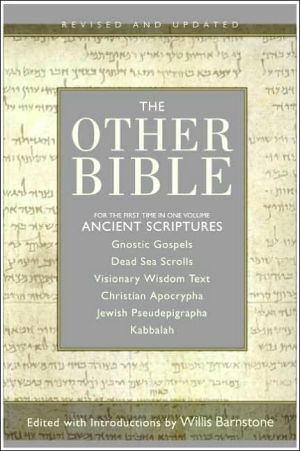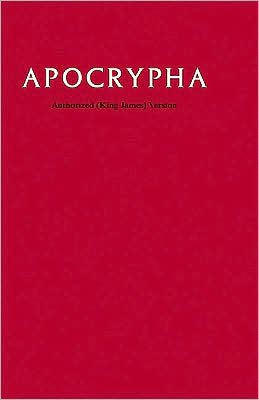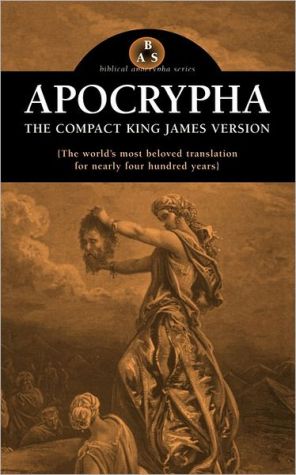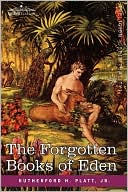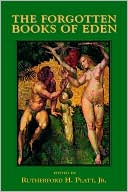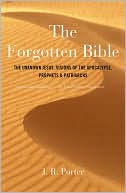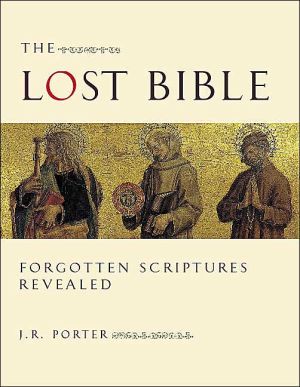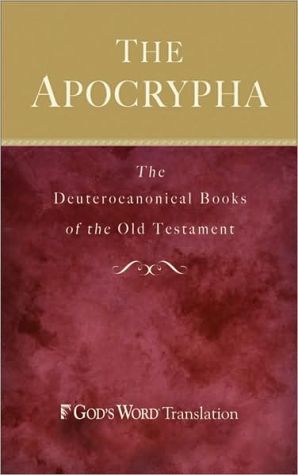Other Bible
A new edition of our classic, The Other Bible, including a new index, new cover, and a new introduction from the author to bring The Other Bible up to date.\ The Other Bible gathers in one comprehensive volume ancient, esoteric holy texts from Judeo–Christian tradition that were excluded from the official canon of the Old and New Testaments, including the Gnostic Gospels, the Dead Sea Scrolls, the Kabbalah, and several more. The Other Bible provides a rare opportunity to discover the poetic...
Search in google:
A new edition of our classic, The Other Bible, including a new index, new cover, and a new introduction from the author to bring The Other Bible up to date. The Other Bible gathers in one comprehensive volume ancient, esoteric holy texts from Judeo–Christian tradition that were excluded from the official canon of the Old and New Testaments, including the Gnostic Gospels, the Dead Sea Scrolls, the Kabbalah, and several more. The Other Bible provides a rare opportunity to discover the poetic and narrative riches of this long–suppressed literature and experience firsthand its visionary discourses on the nature of God, humanity, the spiritual life, the world around us, and infinite worlds beyond this one.This new edition will include a full index and a new introduction from editor Willis Barnstone. o The interest in Gnostic texts begun with The Da Vinci Code has spread to include many of the other "suppressed" early texts of Judaism and Christianity, and this book contains many of them in one volume.
Introduction\ William Blake's wife, Catherine Boucher, once complained that she had very little of Mr. Blake's company for he was always in Paradise. When the English poet was not in the Paradise of an imagined Jerusalem or in the Hell of his native London, he was recording those revelations in a personal bible that he wrote throughout his life. His was a rebellious scripture, influenced by the canonical Bible as well as such texts as The Book of Enoch, a pseudepigraphical text from the intertestamental period. Other poets -- Wait Whitman, Charles Baudelaire, Jorge Guillen -- gave themselves to one book, to recording their personal religion, sacred or profane, in a bible for their times.\ The word bible, from biblia, Greek for "small books," signifies broadly a collection of books by which a person or people can live. The ancient Bible was sacred, for its composition was held to be inspired by God. Similarly, if we believe the text, William Blake's prophetic books were divinely inspired. So the act of inspired composition, whether of a Blake or a Whitman or a biblical patriarch, whether of the West or East, appears to be a universal human endeavor, not restricted to one people or religion. After the closing of the Old Testament and during the first centuries of the Common Era, inspired authors continued to write sacred scriptures. They were written by Jews, Christians, Gnostics, and Pagans. Many of these texts were of amazing beauty and religious importance and competed with books within the canon. The Jewish texts are in large part called pseudepigrapha, which includes the Dead Sea Scrolls; the Christian texts are calledChristian Apocrypha; the Gnostic scriptures, today so fascinating and even modish, were called by their orthodox rivals heretical. These Jewish, Christian, and Gnostic, books are presented here under the title of The Other Bible. Had events been otherwise and certain of these inspired texts incorporated in our Bible, our understanding of the tradition of religious thought would have been radically altered. Today, free of doctrinal strictures, we can read the "greater bible" of the Judeo-Christian world.\ The Other Bible, then, is a book of holy texts that were not included in the Old or New Testaments. It contains creation and Eden myths, psalms and romances, gospels and epistles, prophecies and apocalypses, histories and mystical documents. Every genre of the Bible is represented. It also has works from early Kabbalah, Haggadah, Hermes Trismegistus, and Plotinus.\ Why did the specifically Jewish and Christian texts fail to find a place in the Bible? Was it a question of divine authority, period, doctrine? These errant scriptures are often aesthetically and religiously the equal of books in the canon and offer vital information, such as infancy gospels on Jesus' childhood, as well as alternate versions of major biblical stories. In a Manichaean version of Genesis it is Eve who gives life to Adam, while the serpent, the Luminous Jesus, is a liberating figure urging the first couple to take the first step toward salvation by eating from the Tree of Gnosis. The exclusion of many texts was often as arbitrary and dubious as was the inclusion of such magnificent and dangerous books as Ecclesiastes and the Song of Songs.\ At times the cause of exclusion was fierce political and religious rivalry between sects, between factions, between Jew, Christian, and Gnostic. The antiquity of a book was a primary factor influencing inclusion, and for this reason many competing texts were attributed to great figures of the Bible -- to Enoch, Isaiah, Thomas, Paul-to give them both age and authority. For similar reasons pseudonymous books of the Bible -- the Song of Songs, the Psalms, and certain Epistles -- assumed the names of Solomon, David, and John in their titles. As for the abundant Gnostic scriptures, these were excluded precisely because of their Gnosticizing tendencies. Indeed, it is said that the early Gnostic Marcion of Sinope so angered the followers of the new religion of Jesus Christ that he provoked the Christian Fathers into establishing a New Testament canon.\ The Gnostics were serious rivals of orthodox Christians. The most systematized and organized Gnostic cult was Manichaeism, which and the spread from Mesopotamia through Asia Minor to North Africa an, European territories of the Roman Empire. It extended to eastern Iran and into Chinese Turkestan, where it became the state religion of the Uigur Empire. Western China remained Manichaean until the thirteenth century. In the West it rose here and there as various medieval sects, such as the Bogomils and Cathari, and the Albigensians in southern France. Today in Iran and southwest Iraq the Mandaeans, a Gnostic offshoot of heterodox Jewish sects originally from eastern Syria and Palestine, continue in the Gnostic faith.\ The most serious conflict between Christians and Gnostics was in the first four centuries of the Common Era. In the second century Valentinus, a major Gnostic thinker, sought election as Pope of Rome. Surely the fixation of the New Testament in Carthage in 397 would have been drastically different had Valentinus succeeded; and what would have been the views of that former Gnostic, Saint Augustine, whose words so affected the conciliar decisions at Carthage? Leaving aside speculations, we can say categorically that the Bible, with the absence of sacred texts from the entire intertestamental period, with its acceptance of a small and repetitious canon for the New Testament, with the exclusion of all later Christian Apocrypha, and the total rejection of Gnostic scriptures, has given us a highly censored and distorted version of ancient religious literature.\ The Other Bible. Copyright © by Willis Barnstone. Reprinted by permission of HarperCollins Publishers, Inc. All rights reserved. Available now wherever books are sold.
